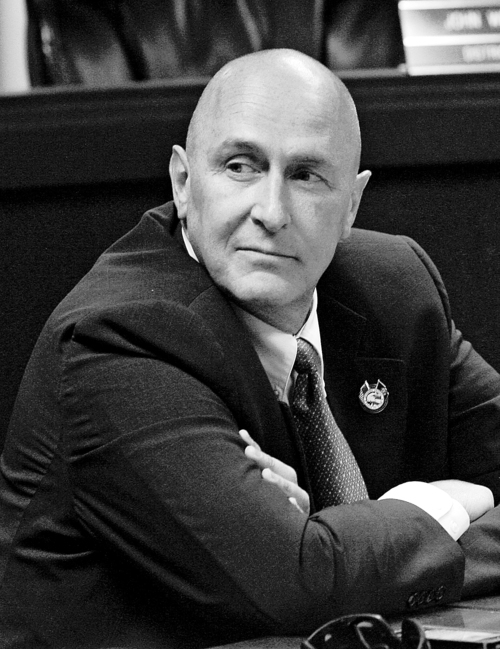This is an archived article that was published on sltrib.com in 2011, and information in the article may be outdated. It is provided only for personal research purposes and may not be reprinted.
Wanted: A legal team ready to investigate the merits and downfalls of college football's Bowl Championship Series.
Utah Attorney General Mark Shurtleff on Wednesday put out the call for law firms interested in taking on the BCS through a federal lawsuit that seeks to have the bowl series declared an illegal monopoly.
"There are serious antitrust violations in the BCS system that are robbing taxpayers of hundreds of millions of dollars," Shurtleff said in a prepared statement on Wednesday. "Putting together the strongest legal team from around the country will give us the best chance at bringing equity back to college football."
Wednesday's query is the second time Shurtleff has put out a "request for information" to law firms that handle antitrust cases. He first announced he was seeking requests for proposals in April. His latest pursuit to find a law firm to take the case is through BidSync (http://www.bidsync.com), where interested firms can file responses until Aug. 8.
Shurtleff's statement brought a response from BCS Executive Director Bill Hancock on Wednesday afternoon, who disagreed with Shurtleff's claims.
"The BCS was carefully created with antitrust laws in mind and we remain confident that the BCS is a pro-competitive force in college football. It has brought significant and unprecedented benefits to the game, the universities, the student-athletes and the fans," Hancock said.
Shurtleff has said he'd like other states to sign on to the lawsuit, but said he'll pursue it alone if there is no interest from elsewhere in the country.
Scott Troxel, a spokesman for the A.G.'s office, said the process is "right on track" to select a firm and have a lawsuit ready to be filed in court this fall.
The lawsuit will seek damages for so-called 'non-BCS schools' that have lost out on millions of dollars over the years because the existing system keeps such non-preferred conferences such as the Mountain West — Utah's former conference home — at a competitive disadvantage, Shurtleff has said.
Under the current system, conference champions from the Atlantic Coast, Big East, Big Ten, Big 12, Pac-10 and Southeastern Conference get automatic bids to five BCS bowls, while teams from leagues such as the MWC and Western Athletic Conference — of which Utah State is a member — must meet more difficult criteria to qualify for one of the more lucrative bowls.
By joining the Pac-12 Conference on Friday, Utah is making the jump to the BCS class of conferences that get automatic bids, but Shurtleff said the lawsuit is worthy of pursuing because a flawed system still remains in place.
Shurtleff has said antitrust violations involving taxpayer-funded institutions need to be examined, especially when many such institutions are hurting, raising tuition or asking for more general fund money to help sustain them.
"It's irresponsible to look the other way and say, 'Well, this is just sports,' " he has said. "The Supreme Court has ruled that antitrust laws apply to the NCAA and college sports and this needs to be rectified."
Last month, Shurtleff endorsed a letter the U.S. Department of Justice sent to the NCAA expressing concerns about the Bowl Championship Series. Christine Varney, of the Department of Justice's Antitrust Division, told NCAA President Mark Emmert that "serious questions continue to arise suggesting that the current Bowl Championship Series system may not be conducted consistent with the competition principles expressed in federal antitrust laws."
Varney's letter to the NCAA stated that the Department of Justice had received a request from 21 professors to open an investigation of the BCS. She wrote that other prominent individuals also have publicly encouraged the Antitrust Division to make a case against the BCS.
The NCAA has said it would eventually respond to the government's questions. Bob Williams, the NCAA's vice president of communications, has said the NCAA is willing to move to a playoff format if schools with the nation's major football programs want to go that route.



